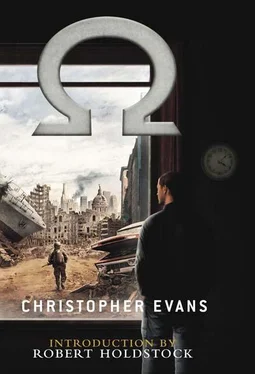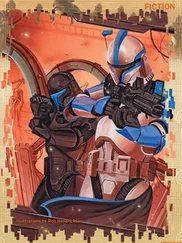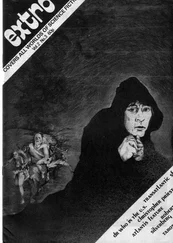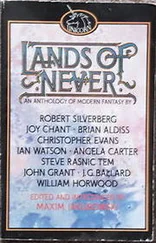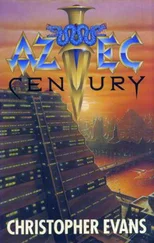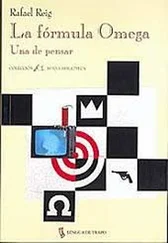The faint glow of the torch highlighted her flawless complexion and the intense concentration she was putting into the task. She didn’t look up once to sh my small moment of glory. I felt a surge of irritation and affection in equal measure. I wanted to snatch the book from her hands and demand she pay me some attention. I wanted to turn the lights on so that everyone else could see what an excellent mother she was.
The dream was vivid, even though it was the merest snapshot, a true reflection of my ambivalent feelings. But a malignant fantasy intruded and my father was sitting there, the serious professional historian who was gazing at the screen with open contempt.
I surfaced in the wrought iron bed. Back in the body of my other self, Major Owain Maredudd, he of the ravaged face and guarded thoughts. He had lurched upright as though rising from a nightmare.
His body was filmed with sweat, the sheets tacky against him. A pale wintry light seeped through the open curtains. The room was filled with the emphatic ticking of a carriage clock. It had been placed on the dresser and showed two-fifteen.
Owain went into the bathroom. He took another cold shower, which again I endured with far less fortitude than he. After vigorously rubbing himself dry, he began to dress.
I tried to will myself back to my own world. This time I couldn’t sense the undercurrents of his thoughts and memories. He’d shut down, as though in reaction to whatever dream had disturbed him, and was narrowly focused on the here-and-now. I felt mentally press-ganged, hemmed in. But I couldn’t escape.
He stood before the mirror, buttoning his tunic to the neck, checking that he looked presentable. His eyes were shadowed and he hadn’t fully recovered his strength; but I could feel his determination to leave the room. He picked up a leather wallet and flipped it open, staring at his ID card as if he needed to verify his own existence.
He tucked the wallet away and retrieved his belt from the bedpost. It held a canvas-holstered hand pistol which he did not remove, though I gleaned that it was a 9mm Walther APS with a twenty-round magazine, standard Alliance Army issue.
A padded jacket hung on the back of the door. It was lightweight, the fabric waterproofed, closures sealed with what here were called dryads, for dry adhesive strips. There were gloves in one pocket, a furlined hat with earflaps in the other.
A carpeted corridor led to a landing where a swarthy female MP was on duty, her black hair tucked up under her forage cap. Owain knew her by sight if not by name.
“Sir?” she said uncertainly.
“I’m going downstairs,” he told her. “Stretch my legs.”
He went past without saying anything further, taking the stairs at a brisk pace but holding on to the handrail.
The stairs debouched on a broad marble hallway that had been partitioned so that it could function as offices. The place was a bustle of clerical activity. An oriental woman sat at a desk piled with box fs; a boy barely out of adolescence was clattering away on a bulky manual typewriter, pausing to scrutinise a document through thick-lensed spectacles.
Owain walked swiftly through the centre of the workspace, almost colliding with a Nilotic man who was talking loudly down a telephone. I gleaned that electronic communications had been severely disrupted for several months, though the thought was quickly stifled.
A pair of steel doors gave access to one of the stairwells. He went down two floors to the lower ground floor, where the vehicle ports were located. But someone was waiting for him on the landing.
“Good morning, major,” she said. “Up and about already?”
She was a dark-haired woman in her mid-forties. Lieutenant-Colonel Giselle Vigoroux, his uncle’s military secretary, a permanent member of his personal staff. Evidently the MP had phoned down, and good for her.
“I was bored,” he said. “How long can you lie in bed when there’s nothing wrong with you? I needed a breath of air, a little drive.”
She smiled at him in a knowing way. She wore her hair short but in a stylish cut which made her cap no more than an accessory to it. Despite the uniform there was always something casually elegant about her.
The pager on her belt started bleeping. Gently she drew him in through the open doors of the service lift. The doors slid shut.
Owain was nervous of lifts but determined not to show it. They were descending into the subterranean heart of the complex. Most of the building above ground was given over to routine administrative tasks; all the important activity was carried out deep enough down to be proof against enemy attack.
Finally the lift stopped and the doors trundled open, admitting a waft of warm, stale air. A short corridor led to another pair of doors. There were signs on them saying AUTHORISED PERSONNEL ONLY in a dozen different languages. Giselle slid her ID card into a slot and pressed digits on a keypad. The doors parted, releasing a wave of even warmer air.
“Your uncle’s not here at the moment,” she told him as she led him through.
“I wasn’t aware that I’d need his permission to go out.”
“I was told you were still convalescing.”
“Does that make me a prisoner here?”
He was pushing it, he knew, and with a woman he liked and who was extremely good at her job. She merely laughed.
“Are you fit enough to go driving?” she asked.
“I wouldn’t be asking if I wasn’t.”
They had entered a room with metal walkways surrounding a large central well. Attentive staff sat before monitor screens, while above them animated maps showed swathes of eastern Europe, the Middle East and the Pacific islands in electric primary colours. The displays were constantly changing as if searching for a static equilibrium but never finding one. Here, deep below ground, the equipment was securely shielded from the electromagnetic interference that plagued surface transmissions.
“You’ll have to excuse me a moment,” Giselle said, and promptly disappeared down one of the walkways.
The large well below was dominated by a softly-lit area with dark banks of machines arranged around it. I knew from Owain that this was AEGIS, the automated tactical and strategic defence network that had been used by the Alliance to direct their military operations for the past quarter of a century. It was part of a network linked to sites in Paris, Hamburg and elsewhere. The Russians had their own equivalent, as did the Americans. All three had been seriously reduced in their operational efficiency following a catastrophic breakdown of the satellite systems on which so much of their data gathering depended. Or so it was said.
One of the TV screens was showing footage of the Chancellor touring the vast concrete fortifications of New Jerusalem. A handsome middle-aged man in his customary dark suit, he was an electronic composite designed twenty years before as a permanent figurehead of the Alliance, immune to assassination, disease and ageing. The Silicon Chancellor, they called him, and he was held in greater affection than any of his flesh-and-blood predecessors.
Giselle returned and led him out of the room. Owain was grateful for the relative coolness of the concrete corridor as they walked back to the lift doors. She presented him with a set of keys.
“There’s a Land Rover out the back,” she said. “Canvas-topped. Make sure you’re back indoors before curfew.”
The lift doors were already open.
“Don’t do anything foolish,” Giselle added. “You know he’s worried about you.”
She meant his uncle. “I’m fine,” he said adamantly. “I just need to remind myself that there’s a world out there. Tell Sir Gruffydd I’m available for duty whenever he needs me.”
Читать дальше
